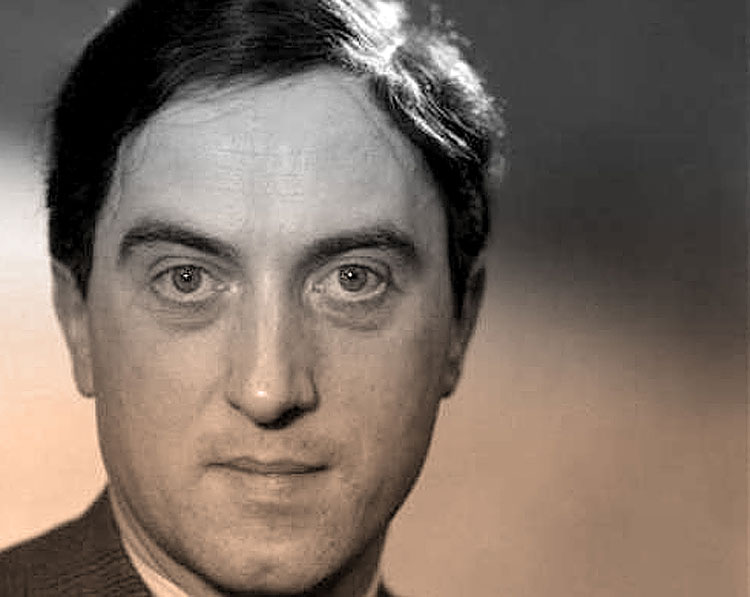In Celebration of the Human Voice - The Essential Musical Instrument
Home | Doo Wop | Barbershop | World | Contemporary | Christian | Vocal Jazz | Choral | Christmas | Instructional | Arrangements
Classical | Opera | Musicals | Personality | Young Singers | Disney | Videos | Songs | The Artists

Maurice Durufle

The French composer, organist, and pedagogue, Maurice Durufle, became in 1912 chorister at the Rouen Cathedral Choir School, where he studied piano and organ with Jules Haelling. At age 17, upon moving to Paris, he took private organ lessons with Charles Tournemire (whom he assisted at Ste-Clotilde until 1927), Guilmant and Vierne. In 1920 Durufle entered the Conservatoire de Paris, where he took courses in organ with Gigout (Premier Prix, 1922), harmony with Jean Gallon (Premier Prix, 1924), fugue with Caussade (Premier Prix, 1924), and composition with Ducas (Premier Prix, 1928). He graduatied with first prize also in piano accompaniment. |
Arrangements | Recordings
Songbooks, Arrangements and/or Media
Displaying 1-2 of 2 items.
Maurice Durufle : Quatre Motets sur des Themes Gregoriens, Op. 10 Durufle's Four Motets on Gregorian Themes for SATB a cappella chorus, composed in 1960 and beloved by choruses around the world, appears in a fresh new edition with new music engraving and with historical introduction in English and English translation of the Latin texts. Includes the movements Ubi caritas, Tota pulchra es, Tue s Petrus, Tantum ergo. Songlist: Ubi caritas, Tota pulchra es, Tue s Petrus, Tantum ergo Maurice Durufle : Motets The arrangements in this collection represent 80 percent of Duruflé's entire a cappella oeuvre, with three from the four Quatre Motets sur des thèmes grégoriens Op. 10 (1960) alongside Notre Père Op. 14 (1977/1978). The name SAM-Klang takes the three voice parts from the arrangements -- Soprano, Alto and Men -- and combines it with the Scandinavian and German words for sound to create the portmanteau word sound together or harmony. The series offers basic and advanced choral repertoire. In addition to new repertoire and new arrangements, you will also find essential parts of the classical German, Scandinavian, French and English SATB repertoire, carefully and considerately reworked for SAM. The arrangements retain the characteristic features of the original movements and have almost the same richness of timbre, resulting in works which sound nearly unchanged to an audience. Piano reductions of all choral movements facilitate rehearsal preparation. The arrangements offer development opportunities for all voice sections, bringing new life and new quality to SAM choir work. SAM-Klang enables youth choirs to gain access to classical choral literature and ensures that mixed choirs who face challenges in finding singers for all male voice parts continue to have access to well-loved repertoire. Songlist: Tantum Ergo, Ubi Caritas, Notre Pere, Tu Es Petrus |
Displaying 1-7 of 7 items.
Maurice Duruflè (1902-1986) dedicated this hauntingly beautiful setting of the Lord's Prayer to his wife. Simple and direct, it is almost chantlike in its melodic purity. Originally written for unison voices (or solo voice) with organ accompaniment, Duruflé later scored it for four-part chorus. These new editions include an English text for singing, the original French text, and a keyboard reduction of the unaccompanied version.
Arranger: Mark Baker
From The Requiem, Op. 9, by Maurice Duruflé this movement was performed in 2009 by the Texas All-State Choir. With most of the music in the requiem derived from chant, the work was written in memory of the composer's father.
Composed in 1960, the text is the final stanza of Pange Lingua Gloriosi by St. Thomas Aquinas (1225-1274). In a traditional mass, this text is used during the veneration and benediction of the Blessed Sacrament.
Composed in 1960, this is one of four motets composed on Gregorian themes. Tota pulchra es is a fourth-century prayer based on texts from the books of Judith and Song of Songs. In Latin with new engraving.
New edition with new music engraving and with historical introduction in English and English translation of the Latin texts.
Maurice Duruflé based this famous motet on an ancient plainchant melody. This new adaptation makes the motet more accessible by an intelligent redistribution of parts: in its opening and closing sections, the first tenor line is reassigned to the altos, and the alto line is given to the tacet sopranos. All of Duruflé's sumptuous harmonies are retained. For the first time, a piano reduction for rehearsal is included.
![]() Vocal Harmony Arrangements - Home
Vocal Harmony Arrangements - Home
Christian | Gospel | Standards | Musicals | Specialty | World | Barbershop | Contemporary | Vocal Jazz | Choral | Christmas
Mixed Voices | Female | Male | 8 Parts | 6 Parts | 5 Parts | 3 Parts | 2 Parts | Medleys | Solo | Folio Series | New Releases
Select a Category |
Want to Sing? - Find a Chorus Near You
List of Choruses by State | List of Choruses by City









